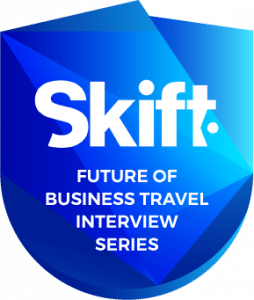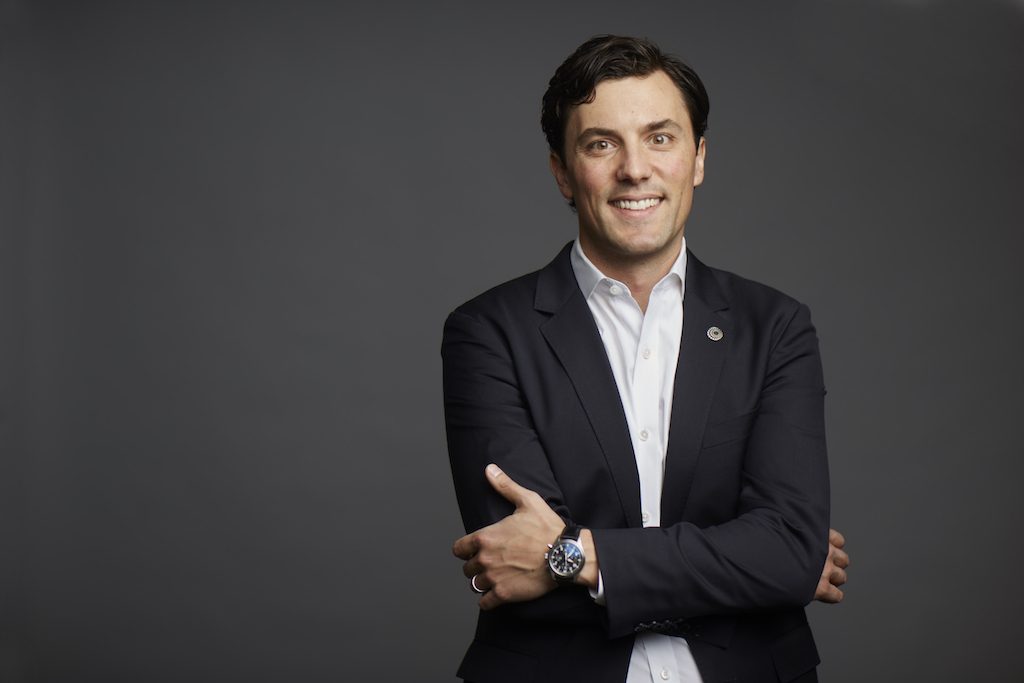Skift Take
Bringing hospitality into the office experience is an elegant way to provide a better experience for workers.
 Corporate travel has not done a good job at solving the problems faced by actual business travelers. Smaller corporate travel companies, along with travel providers and technology startups, are working hard to find solutions to the most enduring problems across the sector.
Corporate travel has not done a good job at solving the problems faced by actual business travelers. Smaller corporate travel companies, along with travel providers and technology startups, are working hard to find solutions to the most enduring problems across the sector.
In this interview series, we will break down the silos between travel sectors to find out from leading travel executives how they are working to make the business travel experience more enjoyable for travelers and simpler for the companies sending employees on the road.
The collision of the office experience and meetings has been particularly fascinating in recent years, with the emergence of new companies blurring the lines between traditionally separate areas of the work experience.
According to Chris Kelly, co-founder and vice chairman of Convene, the evolution of both corporate events and workplaces should lead to hospitality principles entering the mainstream for businesses looking to appeal to the next generation of workers.
“Hospitality venues have always wanted to be versatile for as many types of meetings and events as possible,” Kelly told Skift. “And I think that specialization wins in a world where expectations for customer experience are higher. Along those lines, as the millennial audience is really coming of age, the traditional service delivery of this almost contrived and scripted type of service is being replaced by a much more genuine kind of human to human delivery of service.”
Skift spoke to Kelly about building a smarter venue for meetings, the importance of co-working to forward-thinking companies, and the ability for a simpler experience for event planners to create a better experience for attendees.
This interview has been edited for clarity and length.
Skift: Convene sits at the intersection of the meetings space and co-working. What sort of trends do you see that cut across both areas?
Chris Kelly: What we’re seeing are the collision of a couple of different things. One is, customer expectations for experience are higher than ever. That’s one key thing. And we’re expecting very elegant user experience design, very elevated levels of hospitality, and, also interesting, notable design service and food everywhere that we go. In parallel to that, some of the macro trend that we’re seeing, the integration of work and life, where the places that we work are starting to embody a lot of the elements and attributes of the the places where we live and play. And vice versa.
And the last one is the expectation for technology to be intricately woven into everything we do. Not only intricately woven in but intelligently integrated in ways that improve user experience. These are key themes that we see popping up across all different types of categories and we’re just focused on the areas of professional meeting spaces and professional workspaces.
Skift: On the meetings side, what sort of challenges have you addressed when compared to what hotels usually offer?
Kelly: I would say that one of the most important things that we’ve done as a company is to fully commit our product and service to a very specific type of user in this case. The biggest challenge that I see hotels having in really being the best place in the world to host a meeting, is that they want to be the best place to host a meeting on a Monday but they also want to be the best place to host a wedding or a bar mitzvah on Sunday.
And it’s very hard to do both at the same time. One is like a sports car and one is like an SUV. They’re gonna be good at doing specific things, but when you have the desire to do everything, it probably doesn’t do anything particularly well. What you see at Convene is just a complete, 100 percent dedicated focus on business and professionals for meeting and workplace.
Skift: So what does Convene do differently when it comes to design and event experience?
Kelly: The very first thing is specialization and focus on a core use case, that was the first big innovation. The second big innovation was, unlike most people who have every tried to build full service conference space inside of office buildings, we did not copy and paste the hotel playbook into a workspace. Instead, we used a human-centered design methodology to really ask ourselves at every time, if nobody had ever done this before, if we had start with a clean slate, what’s the best way to design this space? And we took absolutely nothing for granted.
There’s not a meeting planner who doesn’t feel like they’ve been neglected, overlooked, and taken advantage of. And especially as technology has been a part of the meeting business, the way the meeting planners are sold and provided technology is abusive. So we took a completely opposite approach and before anybody had free Wi-Fi, it was free Wi-Fi. We have all of our technology resources built in and included so you’re not paying for a projector, or a screen, or a microphone, or stage lighting, or staging or other things. Every single detail is thought through. And one of service principals is no nickel-and-diming.
We took a totally different approach. I can ask any layperson off the street how much do you think is a reasonable amount of money for somebody to use a projector or a flat screen for one day, and nobody’s gonna tell you what the hotels charge.
Skift: So how does the meetings and events play fit in with what you are doing in the workspace arena?
Kelly: I appreciate your sensitivity in switching up the word WeWork for workspace. Here’s the way that Convene is totally different in that we are a hospitality company that happens to be in the real estate business. The traditional flex service providers are leasing large by spaces chopping it into smaller spaces and they arbitrage the real estate.
Convene really views itself as a hospitality company who is not just chopping the space up into smaller pieces; we’re helping to create a user experience that feels like what it’s like to go to work inside the Googleplex or Apple Park or a Facebook office. Where your entire lifestyle is attended to, not just your workplace alone.
I’m sure you’re familiar with the luxury hotels that stack luxury apartments on top, right? Our value creation mechanic is the same thing. Which is a flexible workspace that is sitting above a full service Convene meeting venue that has the ability to tap into all that hospitality infrastructure, staffing, and service level without any incremental cost to the workplace.
Workers, employees inside a Convene flexible workspace can order catering to their desk like the way you can order room service at a hotel. More accurately, it gets dropped off to your floor, not to your desk. And same thing inside of the offices in the building, we’ll stock the coffee area and the snack area in the way the minibar would be stocked inside a hotel. We’re really taking some of these hospitality principals and applying them to the workplace and the net result is a headquarters experience that you can have on a small scale.
Skift: When it comes to a branded event experience, what sort of customization do you allow that a traditional hotel meeting space may not?
Kelly: We’ve tried to make it about your brand, not ours. So you’ll see the Convene brand logos inside of our spaces are extremely subdued. In all of our new spaces that I can think of, our logo is usually embossed as opposed to being raised because we really try to be humble and subtle like that. But we also have looked for ways to customize the space for the users. So you’ll see a lot of digital signage in our spaces so that people could almost believe that our meeting venue is actually part of a company’s real estate. Some of our newer locations have LED lighting throughout the space that could immediately be flipped at no additional cost, so that a company’s colors are represented in the space.
That’s the extent of the detail that we go into to try to improve the user experience. But that also part of the gamble; you can see how our service philosophy and methodology is also informing the design of the spaces.
Skift: One thing you don’t do, despite the hospitality influence, is provide lodging. How do you approach that element?
Kelly: We’re collaborating with a lot of hotels so that they can specialize on the sleeping room experience and we’re specializing on the conference experience. As conference participants increasingly want to be able to choose their venue as opposed to being locked into a block, the ability to pair a venue like Convene with a mix of boutique hotels or a franchise or an Airbnb, having flexibility in choice of the meeting venue is something that seems to increasingly make more sense.
Have a confidential tip for Skift? Get in touch
Tags: convene, ctir, future of business travel
Photo credit: Convene co-founder and vice chairman Chris Kelly. Convene
